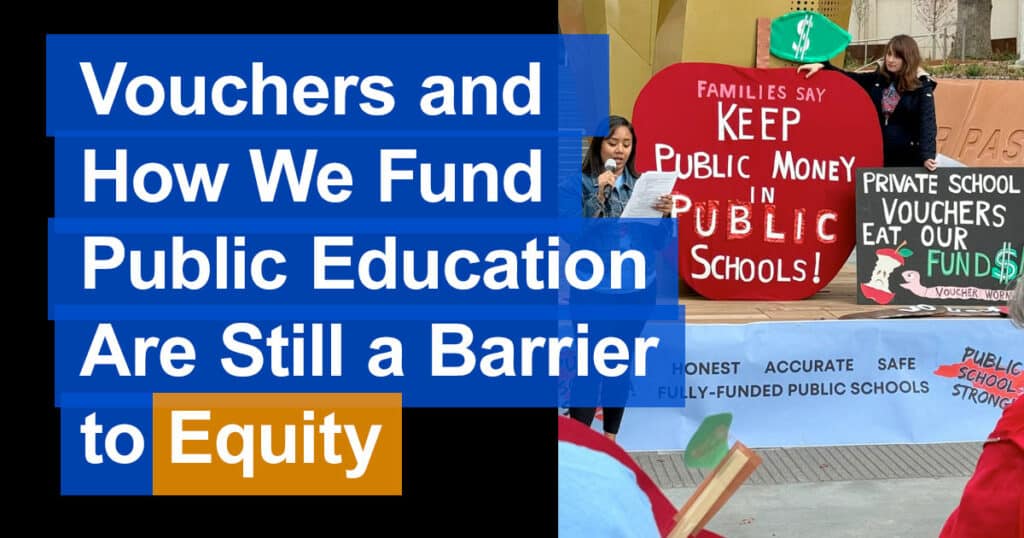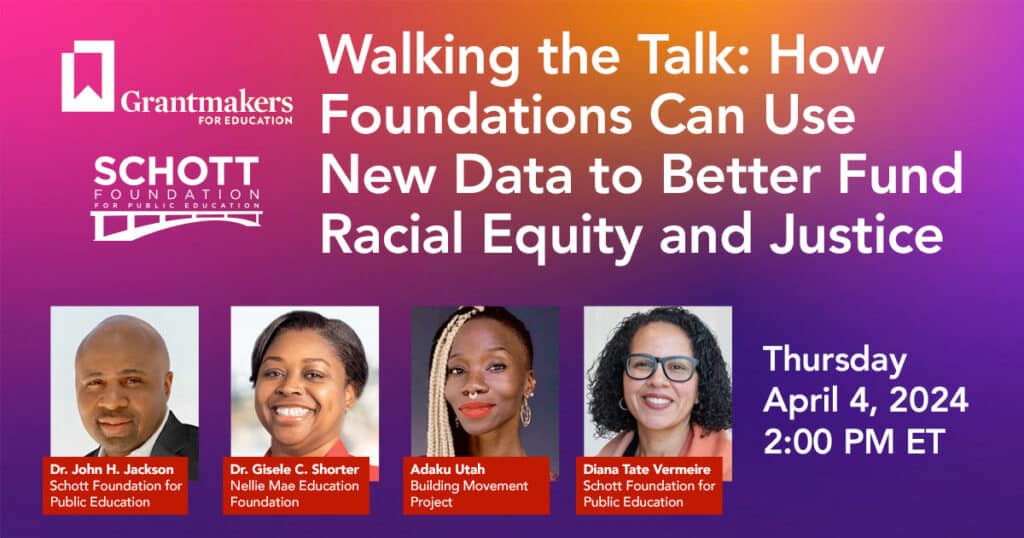Blog
Video: State Policies – How America Changed for Better and for Worse in 2021
Black Lives Matter movement. Presidential Executive Order on Racial Equity. Guilty verdict for Derek Chauvin. Signs that our nation is moving toward a long-overdue reckoning for racial justice.
In the state capitols? There are inspiring wins that move us toward justice—and then backlash, anti-democracy, moves us in the opposite direction.
While the pandemic—which we thought was nearing an end, but wasn’t—and the national news often dominate the headlines, it’s only by looking at what’s moving in the states that you find the optimism earned by hard-won organizing victories for justice and understand the scale of the daunting challenges that remain.
The Best & Worst of Public Policy 2021:
THE WORST 
Post-Reconstruction era voter suppression
The power to create loving cities that provide support for children and families to thrive begins at the ballot box. And, because votes matter, right-wing forces are pulling out all stops to create barriers to voting. Hiding behind the lies and conspiracy theories surrounding the 2020 election, these right-wing and white supremacist forces have used the post-Reconstruction era playbook to craft laws to make it harder for communities of color to vote. The worst examples: three southern states—each with their own sordid post-Reconstruction voter suppression track records: Georgia, Florida, and Texas.
Georgia has become the poster child for voter suppression—with legislation that requires ID to request and return absentee ballots, restricts ballot drop boxes, gives the Republican legislative majority power over county election administration, and (wait for it) even makes it illegal to give water to citizens standing in line to vote. Florida followed suit, adding huge fines for election officials who might make mistakes. Texas will restrict early voting, voting by mail, and ballot drop boxes while helping partisans to harass election workers. The list of states that have passed lesser restrictions on voting, includes Alabama, Arizona, Arkansas, Iowa, Kansas, and Montana.
Hiding shameful history—so it will repeat itself
Imagine being so afraid of your state’s or your nation’s history that you outlawed teaching it. That’s exactly what Texas did. Followed quickly by Oklahoma, to ensure children will continue not be taught historical realities, such as the 1921 Tulsa race massacre or the forced removal of Native Americans during the Trail of Tears. Other states on this right-wing bandwagon include Iowa, Idaho, and Tennessee. The bills are little more than a pledge of allegiance to Donald Trump, who issued a now-reversed Executive Order with the same goal. Social justice organizations are being forced to spend precious resources to organize to prevent this reversal, and fight for anti-racist and culturally responsive schools.
Continuing the assault on public schools
Our democratic nation’s most vital public institution—our public schools—continues to come under attack from those who want to privatize this public good, and steer tax dollars into private schools. 2021 was a record year for that sleight of hand. Several states, including Arkansas, Florida, Indiana, Iowa, Kentucky, Oklahoma, South Dakota, and West Virginia used vouchers, tuition tax credits, and scholarship schemes to funnel state money into private schools.
The backlash against Black Lives Matter protests
As Black Lives Matter protests mount to expose and challenge the many racial injustices in cities across the country, there is a fierce backlash to stop them. No, not by addressing the problems. Criminalizing the protest behavior that is a core underpinning of our democracy. Florida passed the worst example under the guise of “anti-riot” legislation. According to the Florida legislature, a public gathering of three or more people can be classified as a “riot” under the law, and anyone who willingly participates can be charged with a felony. Yes, holding a sign, and marching, all fit that state’s qualification as a felony. The law also denies bail to people arrested until after a court appearance and makes it a felony to destroy a flag or monument. Florida deserves its standing as the worst, but similar bills have been proposed and are pending in most state legislatures.
THE BEST 
The best policies passed in 2021 are a reflection of the dedicated organizing and mobilization done by grassroots organizers. While policymakers get the headlines, the most important work is done in schools, workplaces, and communities. Without strong popular pressure, these legislative victories would have likely never passed.
Increasing equity in Pre-k-12 education funding
There can be no racial justice without education justice. Breaking generational cycles of racism, and economic inequality requires ensuring all children have a fair and substantive opportunity to learn. Colorado, New York and Maryland made major strides with big education wins. After years of statewide organizing, a coalition led by the Alliance for Quality Education scored a landmark victory for equity: more than $4 billion in state aid for low-income districts that supporters called “transformational change.” Maryland enacted the “Blueprint for Maryland’s Future,” a comprehensive education plan that makes school funding more equitable and obligates some $4 billion in annual spending above current levels for early childhood education, recruitment and retention of educators, and more resources for students.
Combating inequities in the classroom
Illinois took a big step toward eliminating damaging policies and procedures that result in deep opportunity gaps for children of color with the enactment of a historic package of education reforms championed by the Legislative Black Caucus. The bill includes incentives for the development of minority teachers, mandates inclusive history education, and establishes a Whole Child Task Force to meet the mental health and emotional welfare needs of students. In North Dakota all elementary and secondary public and non-public schools are now required to include a curriculum to teach Native American history, culture, and treaty rights.
Encouraging Community Schools
Community schools are an integral part of coordinating the cross-sector supports that children and families need to thrive. As the community schools movement is growing across the country, there’s very good news from Arkansas. The “Community Schools Act” encourages the creation of community schools based on the “four pillars” approach: integrated student supports, expanded and enriched learning time and opportunities, active family and community engagement, and collaborative leadership and practices that address out-of-school barriers to learning. Arkansas also took steps to strengthen minority teacher and administrator recruitment, so students of color have educator role models that reflect their communities and lived experience.
Combating economic inequities
Too many people in America work hard, often at multiple jobs, and still can’t make ends meet. The reason: too low wages and too few benefits. One of the great organizing success stories of the past decade is The Fight for 15. That movement has achieved major victories, beginning to move local and state minimum wages to $15/hour. Even though the pace is clearly too slow, as increases are phased in increments over multiple years, there are now ten states (CA, CT, DE, FL, IL, MA, MD, NJ, RI, VI) and the District of Columbia on track to a $15/hour minimum wage.
Lack of paid sick leave creates a huge barrier for working families. On this front, too, there’s action. In 2021, New Mexico passed the Healthy Workplaces Act and became the 16th state to require private employers to provide paid sick leave (beginning July 1, 2022).
Policing the police
Fueled by protests, cell phone videos have brought some of the nightmare realities of police behavior that communities of color experience into the bright light of mainstream journalism and social media. And some states are taking action. Maryland’s landmark legislation repealed the state’s Law Enforcement Officers’ Bill of Rights, created a statewide use-of-force standard, and instituted a new police disciplinary process. As part of the same package of reforms, Maryland mandated body-worn cameras, limited no-knock warrants, and opened records on police conduct. Efforts like these are sweeping the nation, at least in blue states and localities. California enacted a comprehensive package of 17 bills to address the culture that allows and leads to misconduct and work toward “ending the systemic racism present in law enforcement.”
2021 showed that grassroots movements led by youth, parents, and people of color can win victories. In 2022, the racial and education justice movement will keep organizing, building power, and fighting for policies that build equitable, loving systems for all children and families. But justice can’t move forward alone. It takes support.
Special thanks to Bernie Horn of the Public Leadership Institute for providing research for this analysis.


